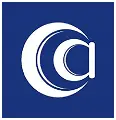Our Work
Committees & Groups
Communications Alliance performs most of our work through Working Groups, Working Committees, and Reference Panels, which members are welcome to join.
Where appropriate, we will invite non-member industry participants to join relevant groups and/or processes.
Reference Panels advise the CEO on the:
- Preparation of planned work to ensure the Reference Panel meets the strategic direction of CA;
- Due process, quality and timing objectives of codes, standards, guidelines and other documents;
- Content of codes, standards, guidelines and other documents;
- General developments in the industry which have an impact on matters falling within the scope of CA.
Working Committees undertake the necessary work to develop new codes, standards or guidelines, and to reconfirm, revise/amend, vary, deregister/withdraw existing codes, standards and guidelines.
These groups perform work that are not for the purpose of the development, reconfirmation, revision, variation/amendment, deregistration/withdrawal of codes, standards and guidelines. Examples include the development of submissions, feasibility studies, and the regular review of technical and operational arrangements.
Publications Register
The Works Program provides an overview of our ongoing and scheduled work.
The Publication Report contains details of all CA codes, standards and guidelines.
Policies and Procedures
Operating Manual for the development of Industry Codes, Standards and Supplementary Documents and the Establishment and Operation of Advisory Groups.
Defines the policy on the review of Communications Alliance documents and the process by which the Customer Equipment and Cable Reference Panel addresses queries on the intent of existing wording of AS/ACIF Standards and ACA Technical Standards for which the Reference Panel has responsibility.
Specifies the policy for the representation of Communications Alliance by our members and the role that Communications Alliance undertakes to represent its members on external bodies.
Provides guidance on Standards development processes and Standards writing for Communications Alliance Working Committees developing Standards for Customer Equipment and Customer Cabling. The guidance is also designed to be read by other Communications Alliance Advisory Groups and Working Groups with activities related to customer equipment or customer cabling.
Provides guidance to Communications Alliance, including Reference Panels, Working Committees and other Groups when developing Standards, Codes, Guidelines or other documents so that equity in access to telecommunications products, services and information for people with disabilities is ensured, and that responsibilities under relevant legislation are met.
The Expression of Intent Procedure is the process by which the Customer Equipment and Cable Reference Panel addresses queries on the intent of existing wording of the AS/CA Standards and ACMA Technical Standards publications that it has the responsibility. In addition, there may be queries concerning associated publications, for example Guidelines, where this procedure may assist in identifying future work that may be required for the Reference Panel’s consideration.
Defines the process by which the Customer Equipment and Cable Reference Panel addresses queries on the intent of existing wording of AS/CA Standards and ACMA Technical Standards for which the Reference Panel has responsibility.

